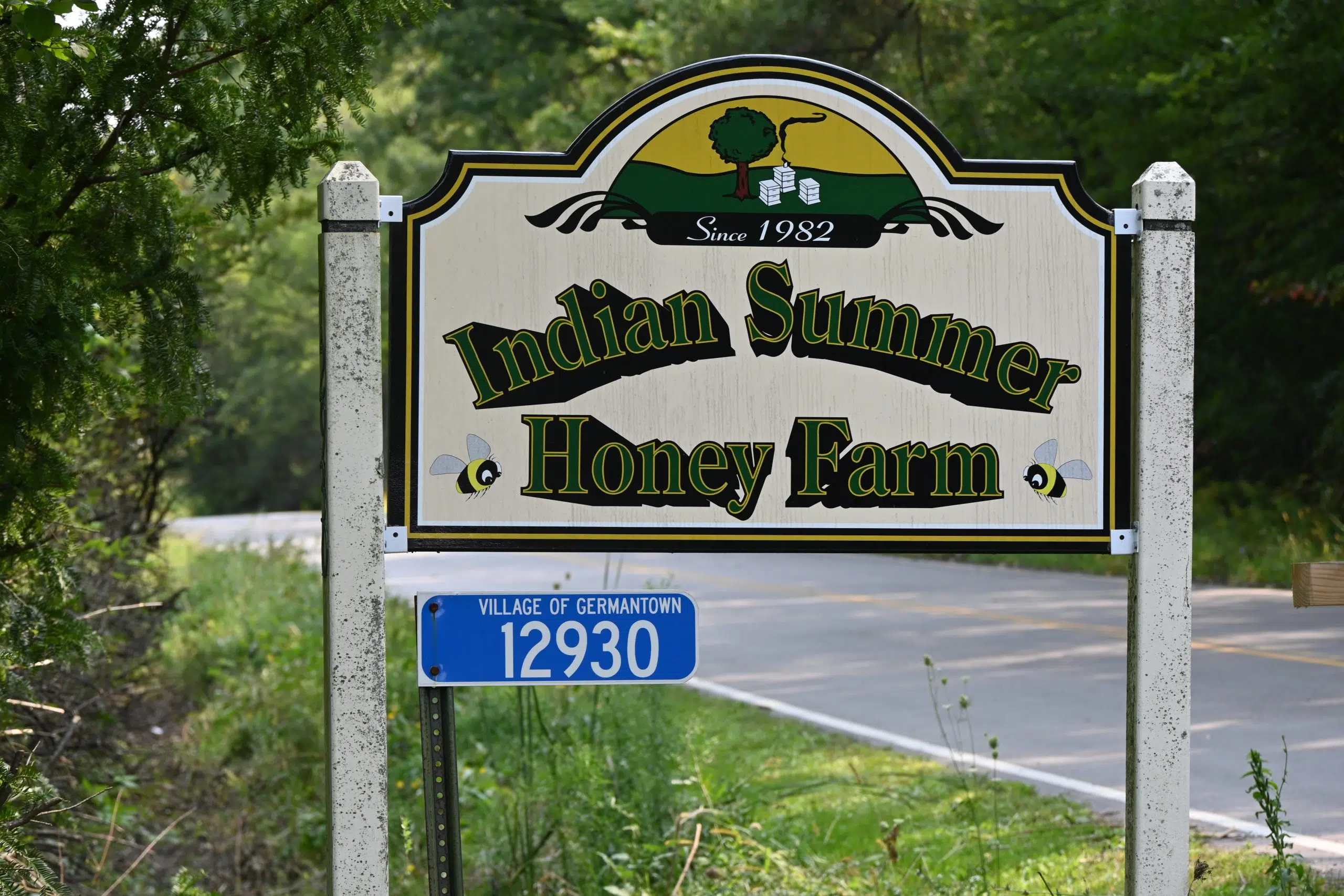September is National Honey Month, so I stopped out at Indian Summer Honey Farm in Germantown to talk with the man who established the farm, Chris Werner. Chris started the farm back in 1982 and in 1987, he married his wife Becky. Currently the farm has about 4,000 hives that are managed by the couple, along with two of their seven children working full-time on the farm and five other full-time employees. The farm has two locations, one in Germantown, Wisconsin and one in Webster, Florida. Chris explained that Florida’s a common place for honey farmers to go during the Winter months so that they can raise queens for other farms.
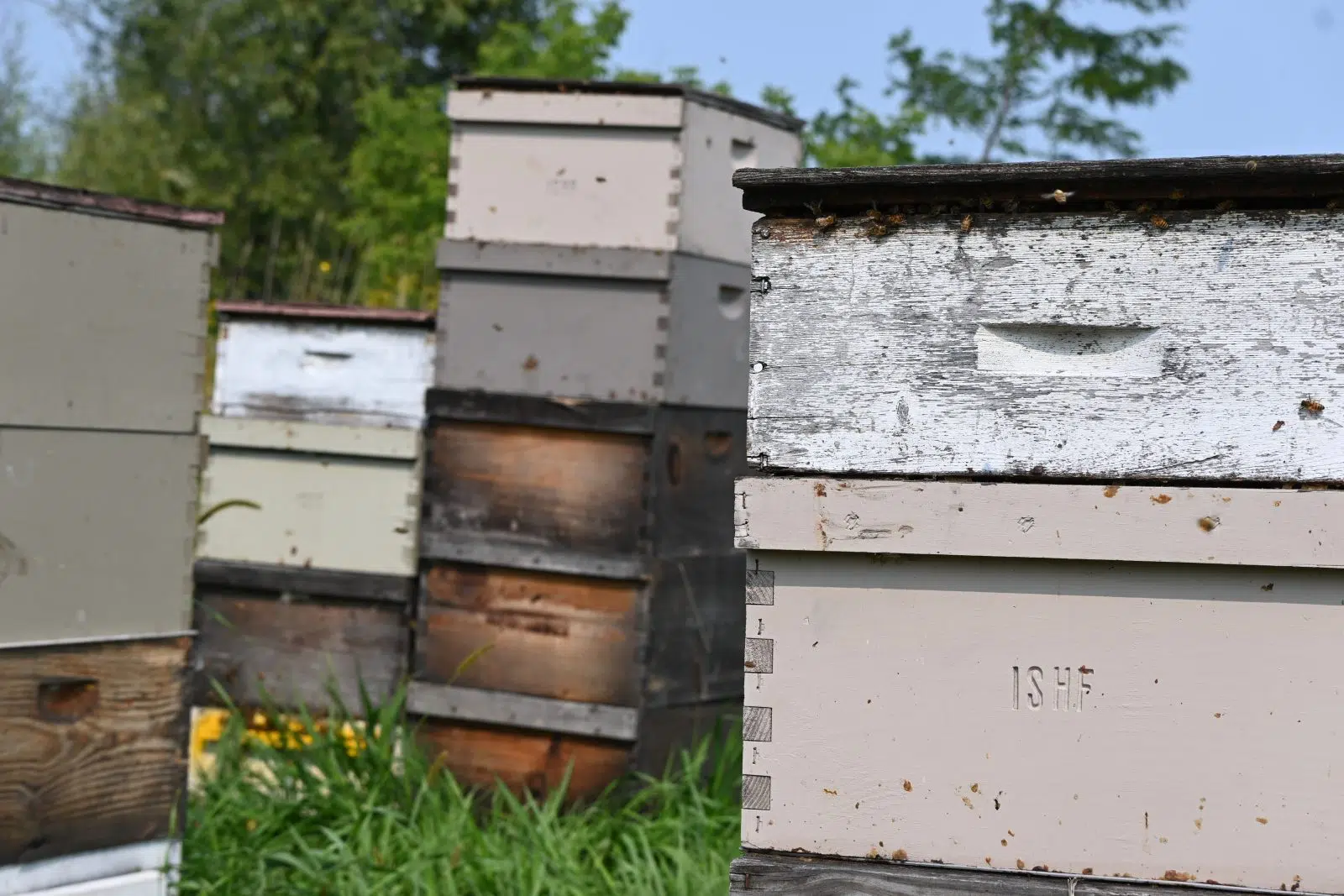
Going back to the beginning, Chris used to be a dairy herdsman and at that time the dairy industry was starting to struggle. Some of the people he worked with told him that he should start looking into the honey industry and that’s exactly what he did! He ended up buying a couple hundred hives and was also invited to help a farmer in Florida to see how the operation worked. Then in 1985, he met his wife and the rest is history.
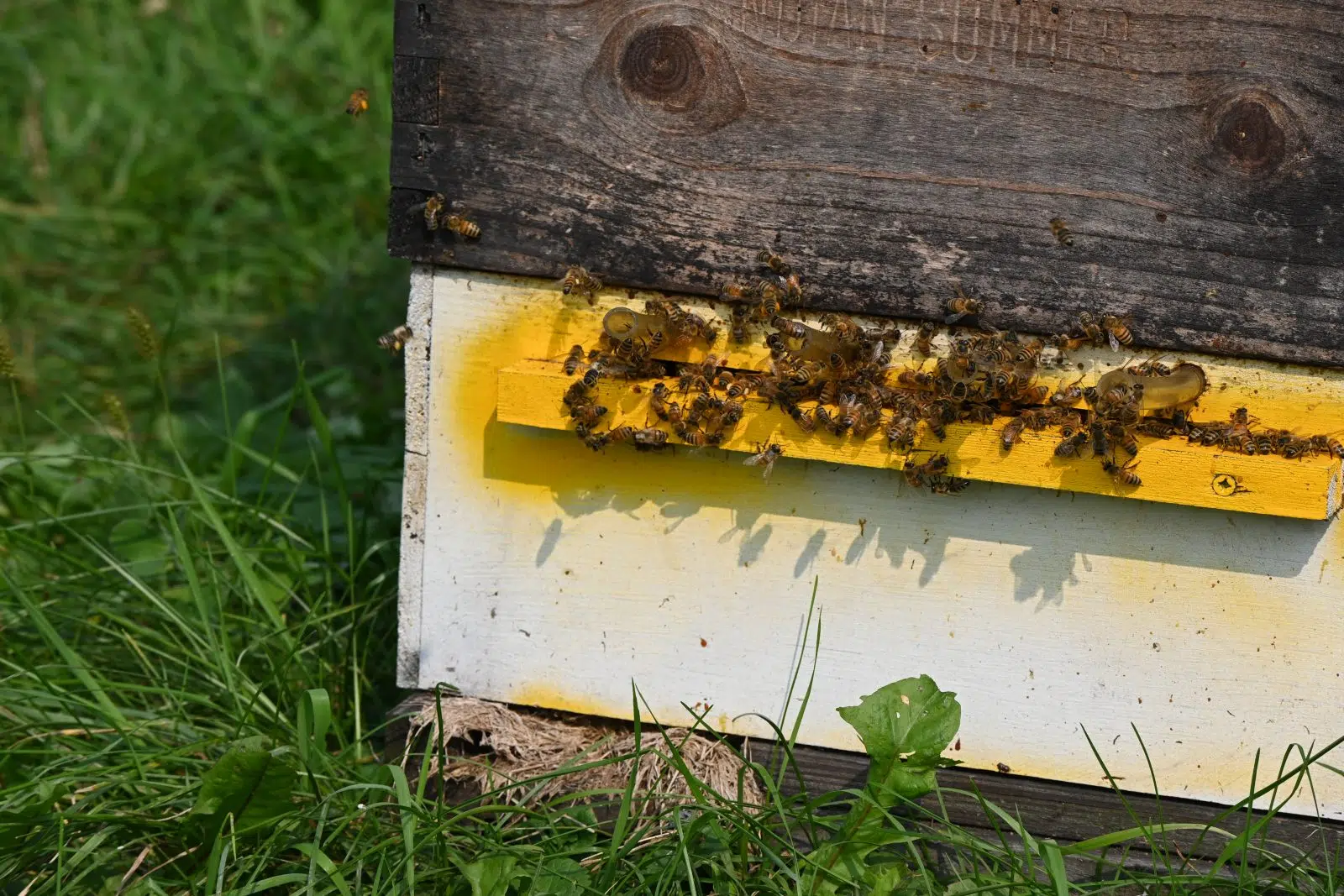
He said that they’re currently getting the bees ready for the big move down to Florida for the Winter because they just finished this year’s honey crop. He talked about how the bees need just as much food to move and winter in Florida as they would if they were to stay up here in the cold. “We get quite a bit of feed in them, we haul them down on semis, and they will spend a quiet period of time in November, December, and early January in Florida,” Chris explained, “By late January we begin the process of dividing them into nucleus colonies and building cell builder colonies and we raise new queens.” Chris mentioned that the hardest part for them is the move each year.
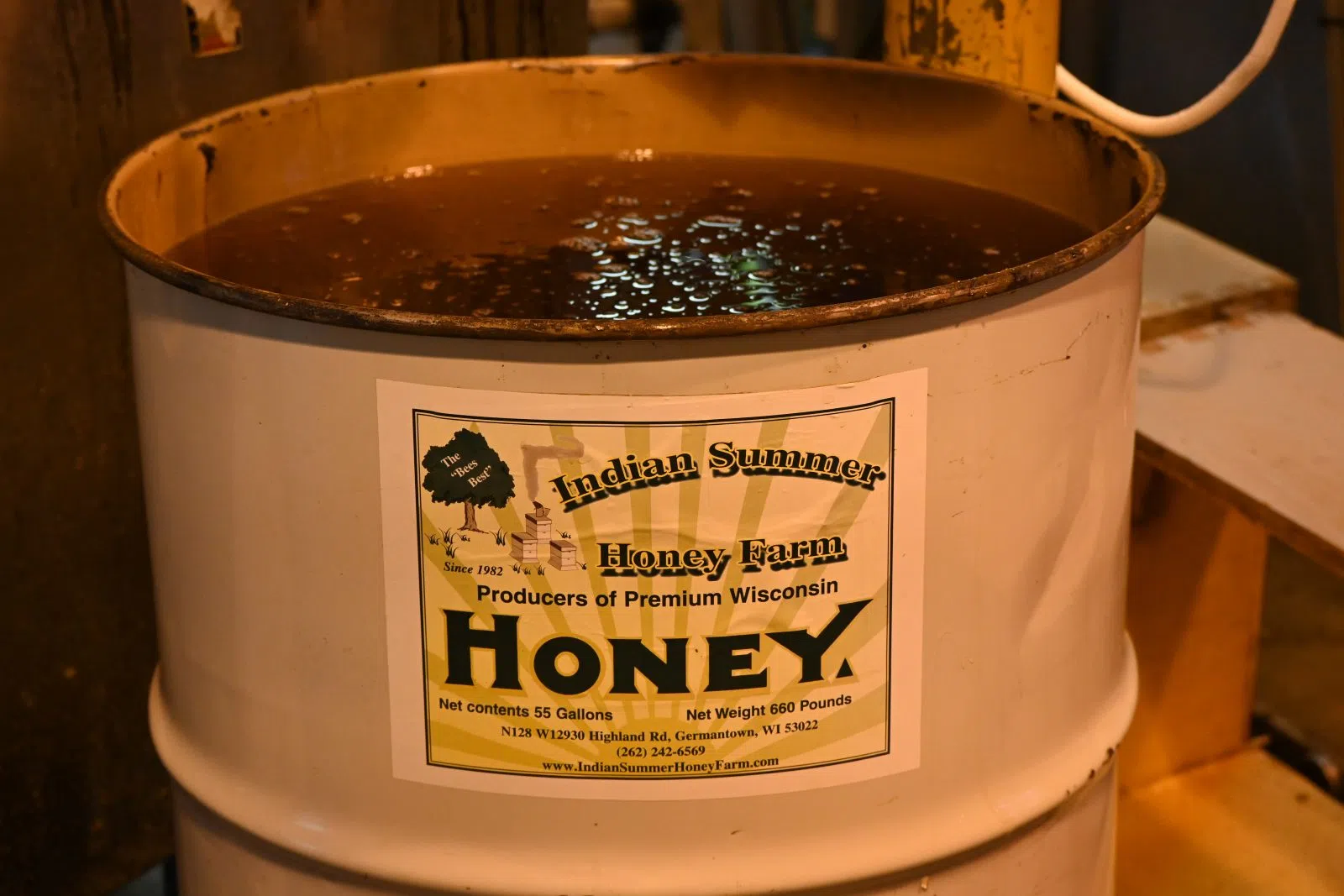
Once May rolls around, they bring the bees back to Wisconsin. May through the beginning of August are very busy months for them because it’s prime honey production time in the state. During those months, the farm extracts the honey and they put it into drums for sale. One of their customers is Sprecher Brewery in Milwaukee, which uses the honey for their sodas.
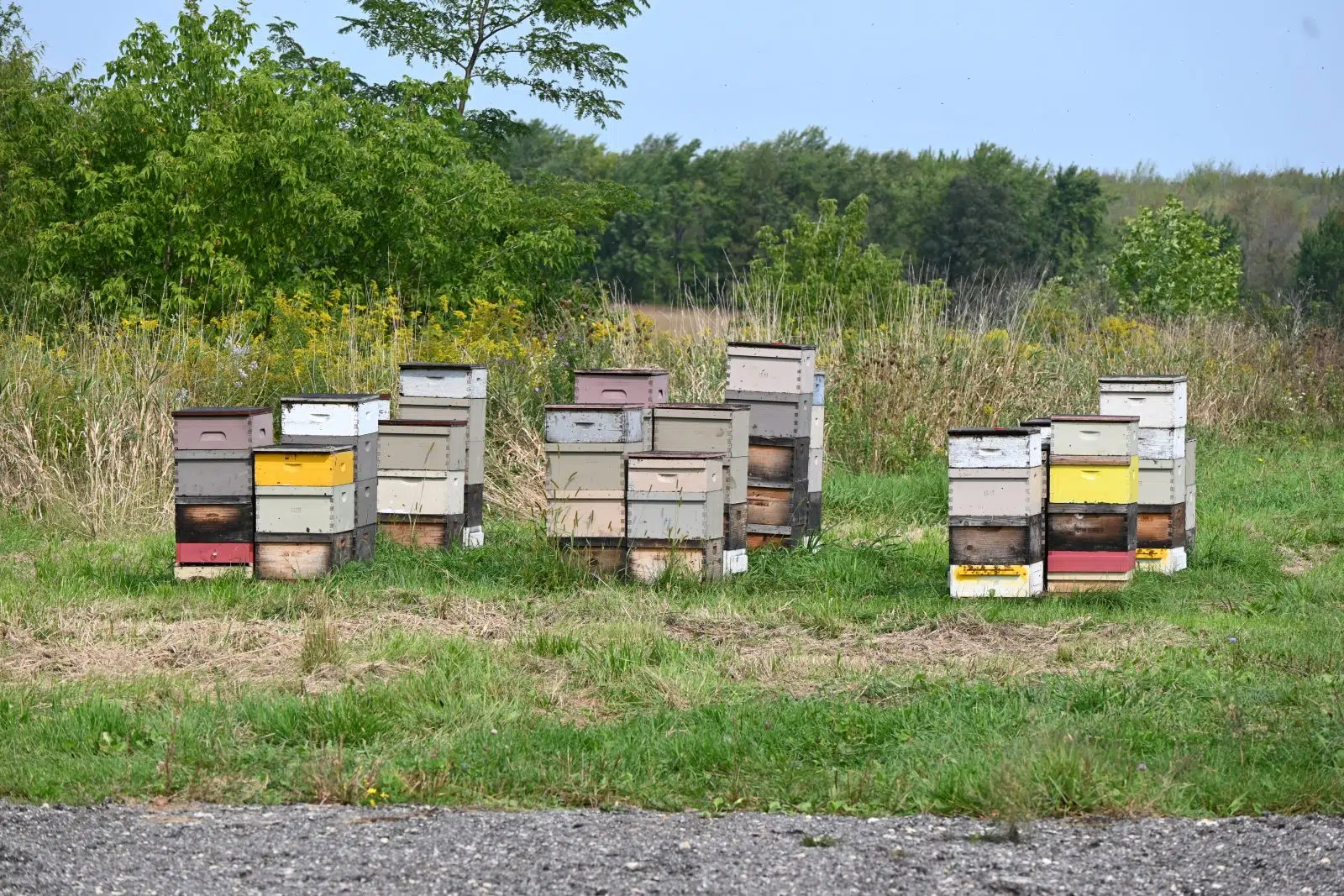
Chris said that they try to be in and out of a bee yard within 40 minutes. In order to get the honey they have to use smoke that’s made from wood pellets and long leaf pine needles found in Florida. He went on to fully explain the reason behind using smoke. “What it does is it moves the bees out of the way when we work,” Chris said. He also reassured that the smoke doesn’t hurt the bees at all. It’s mainly just annoying to them so the bees focus on the smoke instead of what the humans are doing. He said that most days they don’t get stung, but if the bees are really crabby, they can walk away with 30 or 40 stings per person.
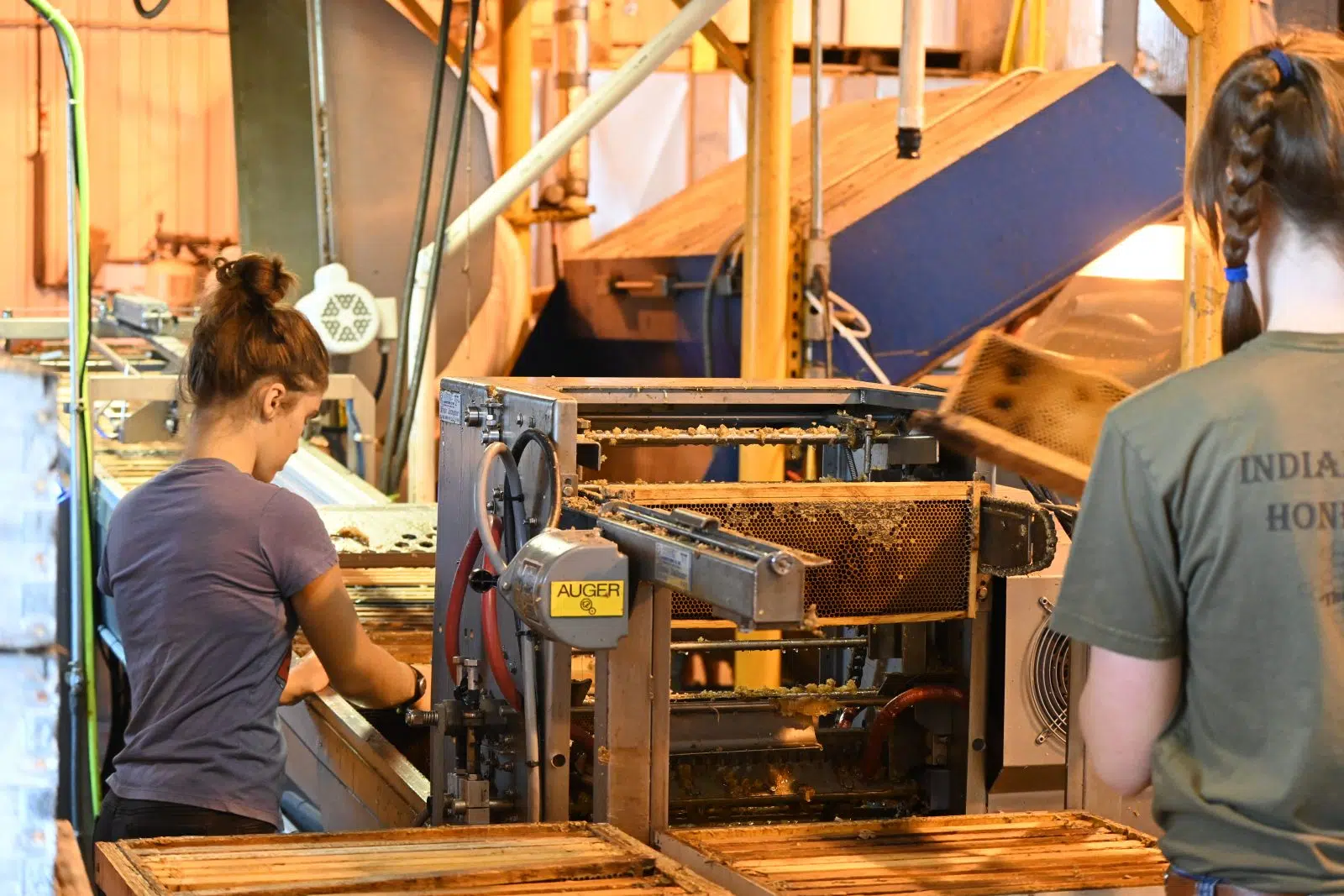
He explained how important the weather is to a honey farm. “The weather has to be pleasant. Not too warm and not too cold for the plants to produce nectar and for the bees to have an opportunity to fly,” Chris said. Basically, if it’s nice enough outside to make hay or go golfing, then it’s good weather for the bees. Werner absolutely doesn’t take this job for granted. “I’m outdoors all of the time. I’m on some of the most beautiful property in Southeastern Wisconsin…Really some spectacular property that most of us would only ever dream of being able to own…it’s really a pleasure.” Chris said.
Thanks to Indian Summer Honey Farm for sharing their story.
Happy National Honey Month!
